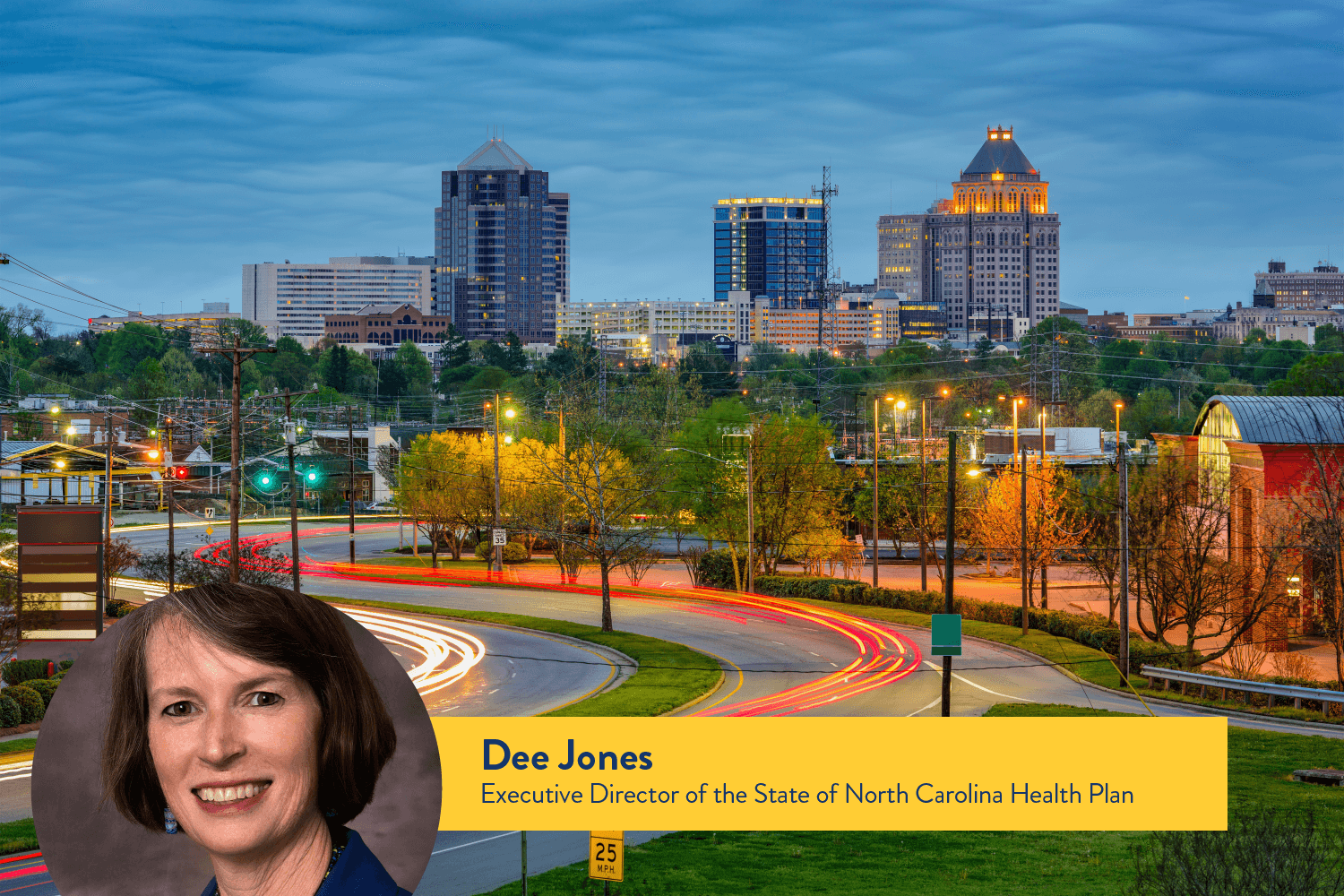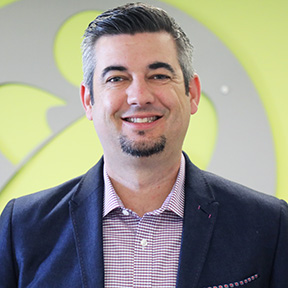
Dee Jones, Executive Director of the State of North Carolina Health Plan
On this episode of The 3rd Question we talk with Dee Jones, Executive Director, North Carolina Health Plan about her priorities - past, current and future, the important of communication and much more!
Video Transcript
Ryan James:
Hello, and welcome to The Third Question, a video interview series with public sector thought leaders from around the country. My name is Ryan James, your host. And today we are lucky enough to be joined by Dee Jones. Dee is the executive director of the State of North Carolina Health plan. And so we're really excited to have a few minutes with her and ask her three questions. Dee, thanks for joining us today.
Dee Jones:
Thank you for having me, Ryan.
Ryan James:
So before we get into the three questions, why don't you give the audience a little bit of an introduction of who you are, your role, your organization, just to give them some perspective?
Dee Jones:
Of course, thank you. So, as you said, my name is Dee Jones. I actually joined the State of North Carolina in 2013. So I have mostly private sector experience in a variety of different industries. My time at the State has been incredible, from the Department of Administration to Health and Human Services, and now in great fortune to work at the Department of State Treasure in leadership area of the North Carolina State Health Plan. Been here about three years, almost exactly actually. And we serve 730,000 members. It's one of the larger State Health Plans, largely because we serve more than just the State agencies. We have also the public school teachers, we have the State Highway Patrol, the Department of Transportation, the people that build our roads, protect our citizens and teach our kids. So, it's a big group.
Ryan James:
So let me get into our questions then. This is the whole point of this is to get some insight. So your first question is this, as the executive director of the State's Health Plan, what are some of the priorities that you've been focused on for your organization? And I guess I'll ask that in a couple of different ways. The priorities that you've had in the past, obviously the present with the current challenges that we're facing, specifically from the COVID-19 pandemic, and then also, what are some of those priorities that you have maybe going forward as well?
Dee Jones:
So I think when I first started I was really focused on organizational development. We had a very vertical structure, and again, my private sector background, I realize that it's really important to spread the knowledge. And I like to be closer to the team. So we went through a large process of organizational design and development. Governance, got to make sure that we're doing what we're supposed to be doing in the learning effort that goes behind that. We looked at a lot of process improvements and cost controls to try to figure out what we were doing well, what we needed to work on. And one of the things we found is that, in the state of North Carolina we were paying high costs, and we very concerned about the longterm effect of those high costs. So we initiated what we call the Clear Pricing Project, and that was a reference based pricing initiative with all of our providers.
Dee Jones:
And currently we work with our TPA to administer the plan and use their network. And over the time, about an 18 month timeframe, we actually built a network from the ground up of 25,000 providers. We didn't get everybody we wanted, but actually it's probably turned out for the best. And so now moving into the present, our main goal is to go to phase two of Clear Pricing Project, and that is to work on alternative payment models and bundles to take that initial effort and move it into something that's more modern. To tie with that is our completion of our healthcare data model or our data warehouse. We're building the capability to be able to do our own data modeling, and that's imperative for funding modernization. It's absolutely critical. But right now we actually are implementing a Medicare advantage and third party administrator contract, so we've got our work cut out for us for the next year in a half or more.
Dee Jones:
But to your point about COVID-19, we're doing like everybody else in sort of meeting the Cares Act requirements. We're working with various agencies to help them with their return to work testing. And so we've worked with Public Safety, we're getting ready to work with Health and Human Services and trying to make sure they understand what their options are. So that's been a good partnership effort, which has been always great. And then for the future for us, again, it's Clear Pricing Project phase two, three, whatever comes after that, initiatives to try to get more engagement from the hospitals in that process. Continuous improvement, again, coming from the private sector, you can't just stop. And then future contracting needs. Oh, and then there's the election in November.
Ryan James:
Oh yeah, that too.
Dee Jones:
We kind of need to figure out, what is that going to impact? And I think one theme throughout for us is member engagement. And that is past, present, future and forever, because our members have long relied on the plan to be there. They don't really understand how it works. They think that it's the function of the TPA, not us. We are self-funded. It's all the State Health. State of North Carolina pays it and we control how the plan operates. So if I had a silver bullet for that one, it would be great. So we're going to continue to work on that.
Ryan James:
Well, it's a perfect segue into, I guess my second question. Because also, I find it always interesting when somebody comes with private sector experience, because typically they have a different viewpoint on how things can be done, and then they get into the public sector and it sometimes doesn't go quite as fast maybe. But they also come with different ideas, which I think is invaluable. But that segue. So I guess my second question is this, what are some of the State's biggest challenges when it comes to that empowerment that you've talked about, the communication, the education, and really just providing for your employees from an HR and benefit perspective?
Dee Jones:
Sure. Again, communication was the first thing that came to mind, and it's communication to the citizens, it's making sure they understand and get engaged. They don't always hear the truth and the facts. Really, educating citizens, educating our members, is critical from a communication standpoint. In North Carolina, we have a lot of natural disasters like hurricanes, and so we've actually had a number of different hurricane, a couple the last few years, which there's still a recovery effort. And now with COVID and the economic impact, because tourism is impacted and taxes are impacted, like everybody else. And so that's going to be a really big challenge, I think, going forward. And then all that leads to the employees. Certainly during this COVID timeframe the last couple of months we've been working from home, like so many others.
Dee Jones:
And so we need to support our staff and get them through this hard time. They're stressed. The stresses of COVID, the stresses of childcare, the stresses of school. Maybe they're impacted by their job or some other economic impact. And again, maybe they've been sick. It's just a very stressful time, and I'm really hopeful that we can continue to support their needs to be at home. We're public servers, and I doubt that we're going to forever work at home. It just does tie back to our servitude. But we need to try to monitor and help our employees get back to where they can feel good about coming into the office.
Ryan James:
Yeah. Some good thoughts there. So we've come to the third question, the name of this series. And I have got over my shoulder, I've got a few different time machine things, and today I'm going to choose The Time Machine by HG Wells book. So Dee, as someone who has worked, I guess, both in the public and private sectors, if you had a time machine and you are able to go back to any point in your career, what advice would you give yourself, or what would you change on how you did things? And then probably the most important part, why?
Dee Jones:
Wow. So, that was a fun one to think about, and I think I came down to three things. One is communication, one is relationships, and the third is the old standby, trust, but verify. I came up in the finance world and have moved into varying leadership roles. A lot of different companies, a lot of different industries. And communication is challenged everywhere. And the better you can communicate, and over communicate and be clear about communication, I think that is critical. It's been important here at the State, because it's important to keep people informed, it's important to know what's going on. And one of the things moving into the second is relationships. I've been a relationship builder, but I didn't know way back when how important that was. I have learned over the years I would have started sooner. So that'll be something I impart to my son as soon as possible.
Dee Jones:
But that said, having relationships, and knowing how to develop those and the importance of them has helped me to communicate, and understand what's going on and try to leverage partnerships. And then trust, but verify. I mean, what can you say about that? I've trusted when I shouldn't have, and it's never a flaw to verify. And I try to live by those things and work where I can leverage my skills. I've learned in the State that you need to go slow. You mentioned that earlier. Nothing happens as fast as you want. Never nothing ever happens as fast as I want it to. Patience is never going to be one of my strongest suits. But what I've learned in the State, is if I stay under the radar and leverage those relationships, leverage communication, trust, but verify, I can actually get things done without creating a big fanfare, or get something that's so controversial or challenging that it gets stopped in its tracks because someone doesn't like it. Go low, go slow and keep it rolling.
Ryan James:
Awesome. Well, thank you. Thank you so much. It's pleasure getting a few minutes on your calendar today and getting to ask these three questions. If any of our viewers want to see this again or subscribe to the interviews that we're having, they can go to thethirdquestion.com and do that. Dee, thank you again so much for your time. We appreciate it. Stay safe. Thank you for what you're doing as a public servant. We really appreciate it.
Dee Jones:
Ryan, thanks so much for having me today. Take care.
Ryan James:
Bye-bye.

